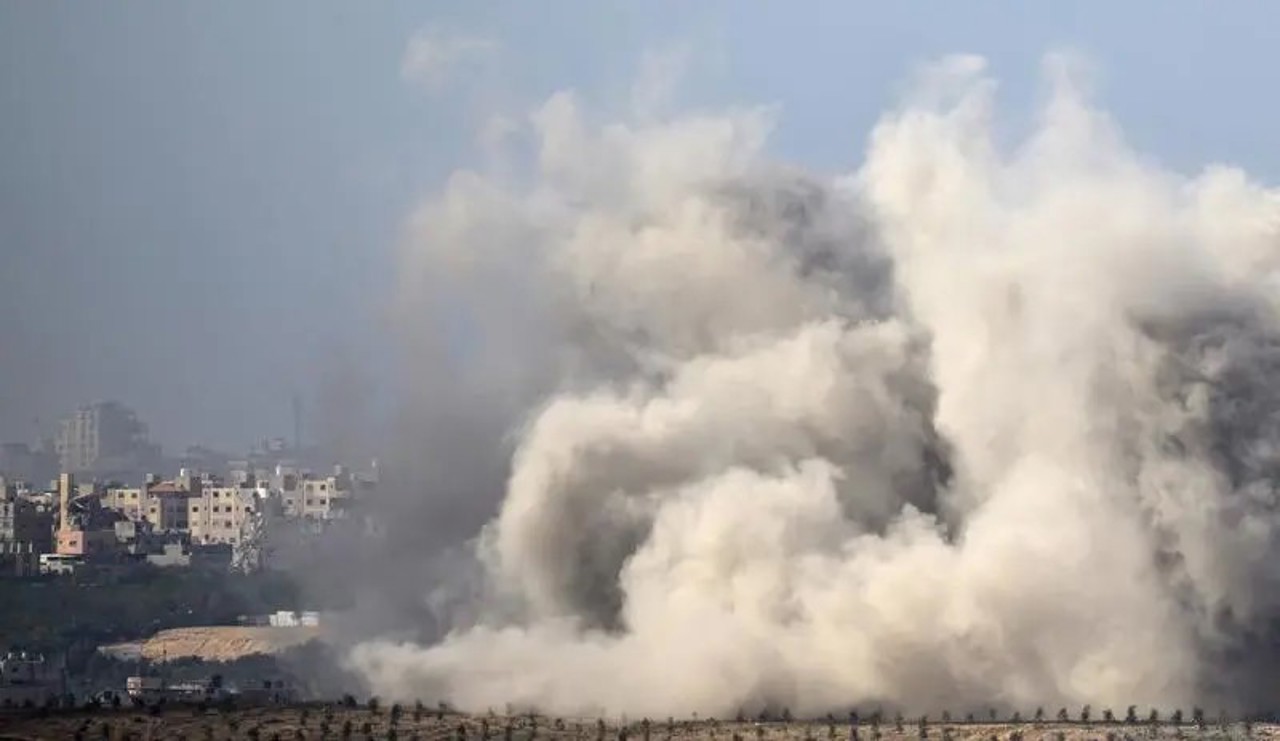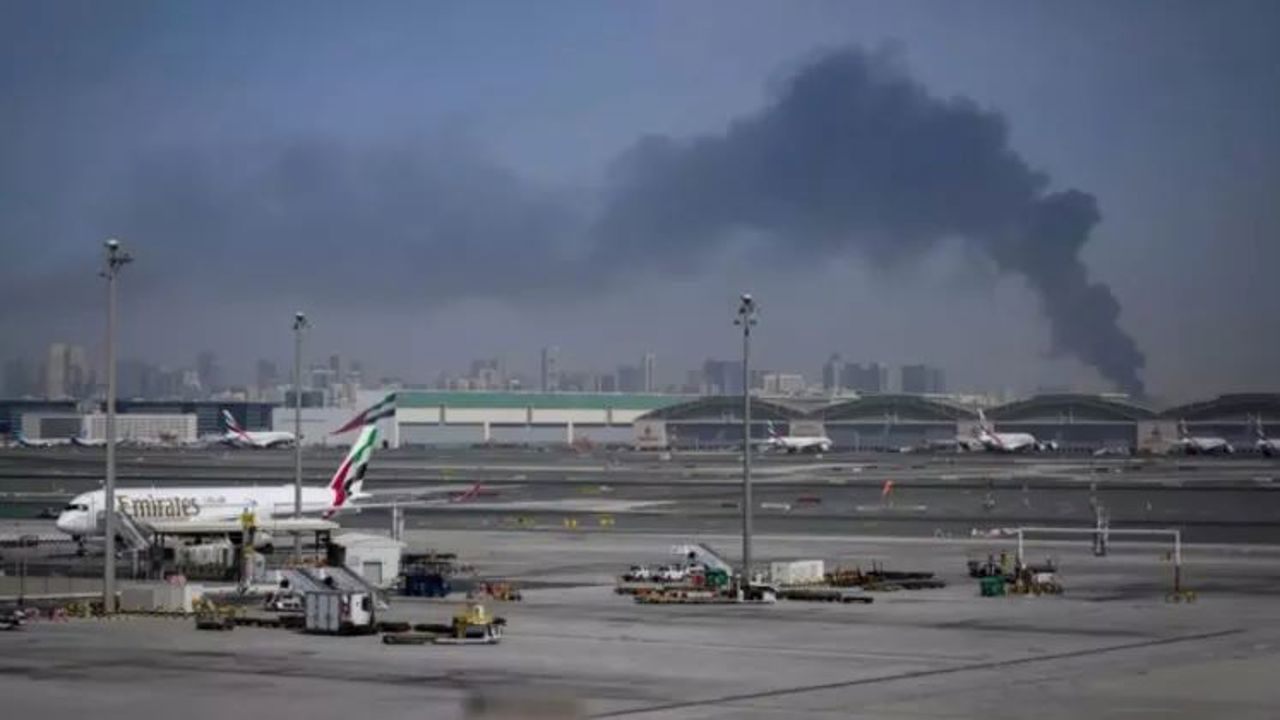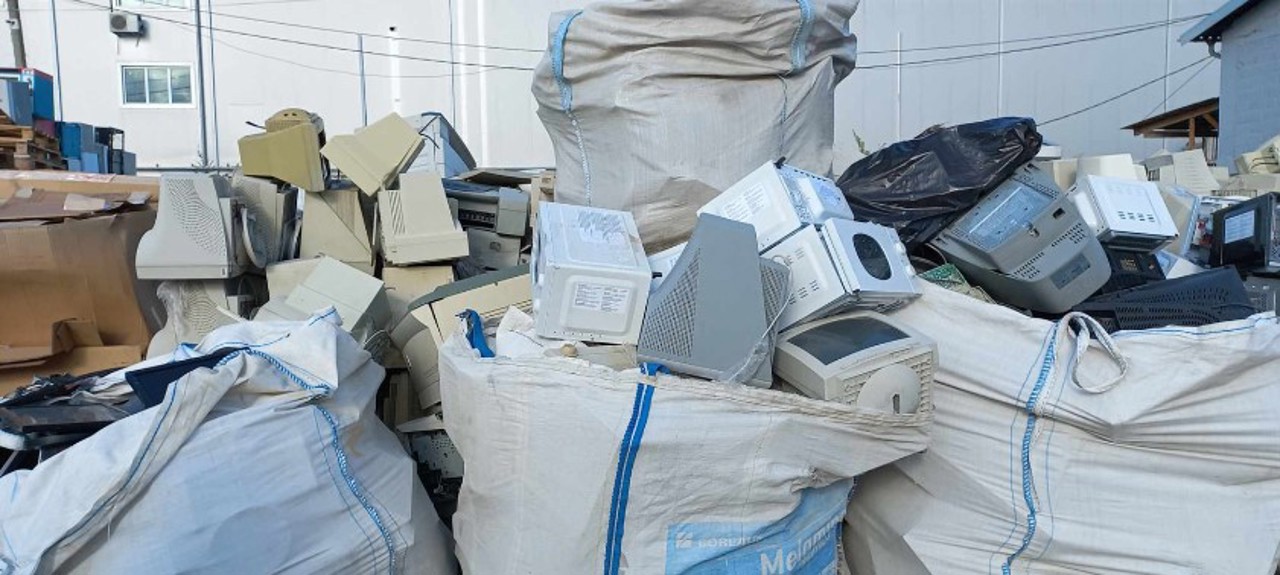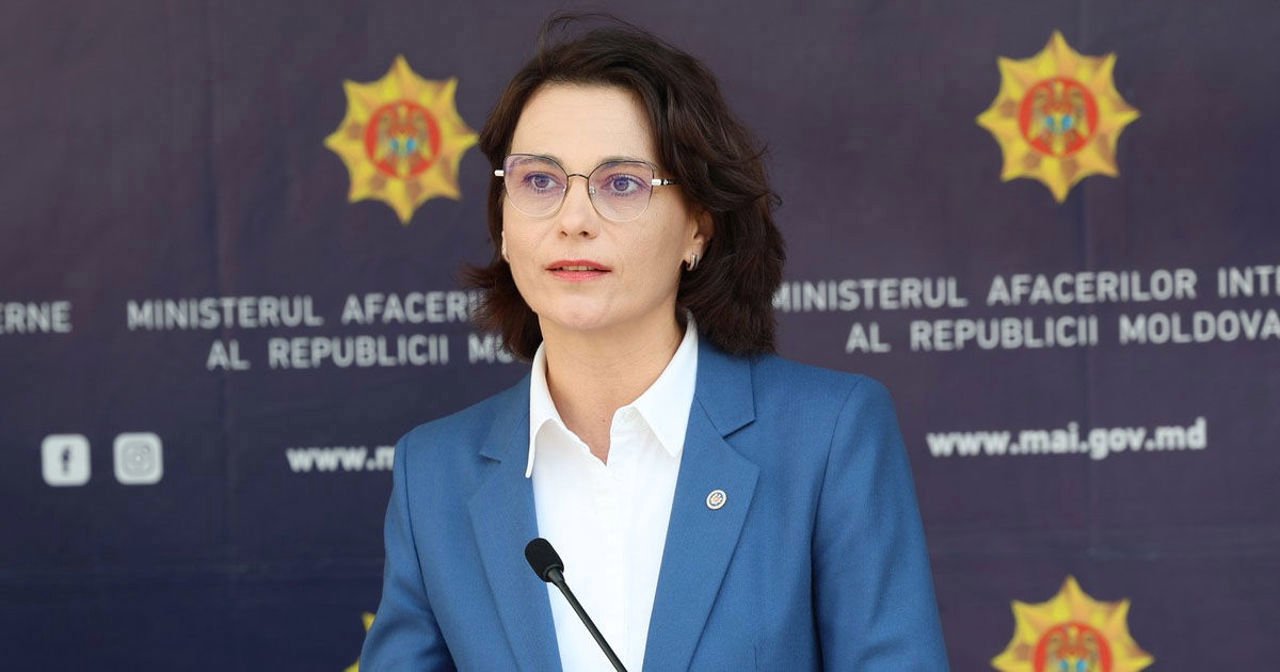Hezbollah and Israel exchange heavy fire amid Cairo ceasefire talks
A high-level round of discussions in Cairo, aimed at establishing a ceasefire and reaching an agreement on hostages to temporarily end the 10-month Israel-Hamas war in Gaza, concluded on Sunday without a final accord, according to an American official.

However, discussions will continue at lower levels in the coming days in an effort to resolve the remaining differences, according to AP. The official, who spoke on condition of anonymity, stated that "working teams" at lower levels will remain in Cairo to meet with mediators from the United States, Qatar, and Egypt in hopes of addressing the remaining disagreements.
The official described the recent conversations, which began on Thursday in Cairo and continued through Sunday, as "constructive" and indicated that all parties are working to "reach a final and enforceable agreement."
The discussions included CIA Director William Burns and David Barnea, head of the Israeli intelligence agency Mossad. A Hamas delegation was informed by Egyptian and Qatari mediators but did not directly participate in the negotiations, according to news.ro.
This development followed the exchange of heavy fire between Israel and the Lebanese militant group Hezbollah on Sunday morning. Both sides refrained from initiating a feared total war, with each signalling that the most intense exchange of fire in recent months had concluded.
Hezbollah claimed it struck an Israeli military intelligence centre near Tel Aviv as part of a barrage of hundreds of rockets and drones, while Israel asserted that its dozens of strikes were preventive measures to avoid a larger attack.
Hezbollah leader Hassan Nasrallah stated that the attack, a response to Israel’s killing of a top militant commander in Beirut last month, was postponed to allow time for the Gaza ceasefire negotiations and for Iran-backed groups to consult with Iran on whether to launch a coordinated attack on Israel.
The Israeli and American military deployments also played a role. Nasrallah told the Lebanese people, “At this stage, the country can breathe easy and relax.”
Israel and Hezbollah both declared that they targeted only military sites. Israel specified that Hezbollah did not hit any military targets, but a sailor in its navy was killed and two others were injured by either a fire interception device or shrapnel. Two Hezbollah fighters and a militant from an allied group were killed, according to the groups.
Israeli Prime Minister Benjamin Netanyahu stated that the army had intercepted thousands of rockets aimed at northern Israel and had downed drones heading toward the centre of the country. Air raid sirens were reported across northern Israel, and Israel’s international airport closed and diverted flights for approximately an hour.
Israeli military spokesperson Rear Admiral Daniel Hagari said that approximately 100 Israeli aircraft struck 270 targets, 90% of which were rocket launchers aimed at northern Israel. He stated that the percentage of intercepted rockets and drones is being investigated but added that “the vast majority” were thwarted.
Hezbollah claimed that its attack involved more than 320 Katyusha rockets aimed at various locations in Israel and a “large number” of drones. Lebanese interim economy minister Amin Salam, following an emergency government meeting, stated that officials feel “a little more optimistic” about de-escalation after both sides confirmed that their operations had ended.
U.S. President Joe Biden has “closely monitored events in Israel and Lebanon,” according to Sean Savett, spokesperson for the National Security Council. The Pentagon stated that Defense Secretary Lloyd Austin spoke with his Israeli counterpart, Yoav Gallant, and ordered both American carrier strike groups in the region to remain. The U.S. military has reinforced its forces in the region in recent weeks.
The Chairman of the Joint Chiefs of Staff, General CQ Brown, arrived in Israel at the end of Sunday for meetings regarding what the Israeli military termed “joint regional preparations as part of the response to threats in the Middle East.”
Danny Citrinowicz, an expert at the Israeli Institute for National Security Studies, suggests that Hezbollah might seek to “balance the equation without escalating into war.” Each side hopes that its narrative will be sufficient to declare victory and avoid a broader confrontation, he added.
Hezbollah began its attacks on Israel almost immediately after the Gaza war started, which was triggered by the Hamas attack on October 7 in southern Israel. Israel and Hezbollah have exchanged fire nearly every day, displacing tens of thousands of people on both sides of the border. Hezbollah, which fought Israel to a standstill in 2006, is considered much stronger today.
The United States and Israel estimate that Hezbollah has approximately 150,000 rockets and is capable of striking anywhere in Israel. The group has also developed drones capable of evading Israeli defences and precision-guided munitions. Israel has vowed a crushing response to any major Hezbollah attack.
Israel has an extensive multi-layered missile defence system and is supported by the U.S.-led coalition that helped shoot down hundreds of rockets and drones launched from Iran earlier this year. Hezbollah is a close ally of Iran, which has also threatened to retaliate against Israel for the killing of Hamas leader Ismail Haniyeh in Tehran last month.
Israel has not stated whether it was involved. Iranian state media has highlighted Hezbollah’s attack, calling it a success, but Iranian officials have not commented immediately.
The United States and other mediators consider a ceasefire in Gaza essential to avoiding a broader war in the Middle East. Hezbollah has declared that it will halt attacks on Israel if a ceasefire is established.
Translation by Iurie Tataru




